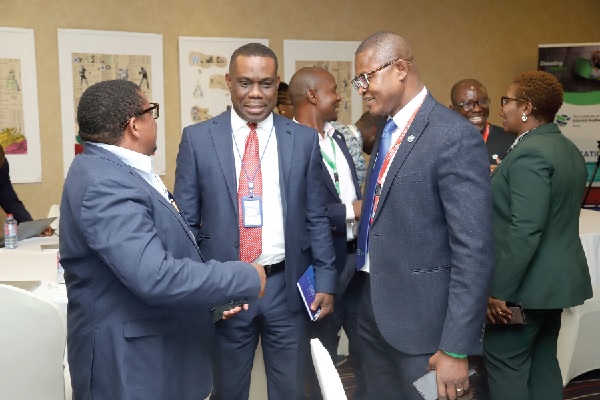
Find solutions to fiscal indiscipline — Oduro-Osae charges Internal Auditors
The Director General of the Internal Audit Agency, Dr Eric Oduro-Osae, has advised internal auditors across Africa to find a solution to fiscal indiscipline among countries on the continent.
He said almost all African countries had been to the International Monetary Fund (IMF) for assistance, which was an indication of the high level of fiscal indiscipline on the continent.
Dr Oduro-Osae said internal auditors must, therefore, be intentional about supporting the reduction of fiscal indiscipline in the public sector to prevent African governments from going to the IMF.
He was speaking at the opening of the three-day workshop, which brought together professional Internal Auditors across Africa to deliberate on ways to strengthen the growth of the internal audit profession within Africa and forge ahead partnerships for mutual benefit.
Organised by the African Federation of Institutes of Internal Auditors (AFIIA) and the Institute of Internal Audit Ghana, the workshop was also to create a platform where internal auditors share experiences, collaborate and discuss matters of common interest.
The workshop is also aimed at building the capacities of the participants to serve the interests of members and meet the expectations of stakeholders after the workshop.
The third AFIIA Leadership workshop was on the theme “Enhancing strategic growth and partnership”.
Leveraging technology
Dr Oduro-Osae also urged the internal auditors to leverage technology and be interested in financial governance by identifying their role and strategising through partnerships with the government.
“Effective financial governance will lead to improved democracy. Democracy without improved financial governance is meaningless and Internal auditors cannot be left out,” he said.
He further advised them to avoid working in silos and collaborate with professional institutions and other professional bodies to build their respective nation.
Highlighting some common challenges faced among internal auditors, he said several Internal auditors faced professional abuse with some losing their jobs or being marginalised in situations where they insisted on doing the right thing.
Dr Oduro-Osae called for a common strategy or standard across Africa to protect and support such members who faced professional abuse.
He said the agency was doing its best to protect members to stand for what was right in terms of the ethics that pertained to their work.
He also called on AFIIA to work to ensure that there were more women in the internal audit profession since it had been male-dominated.
The Chair of the African Federation of Institutes of Internal Auditors, Ruth Doreen Mutebe, for her part, urged internal auditors to work on growing the numbers of members in Africa to create long-term sustainability of the profession.
She advised them to build their capacities and take the Certified Auditors (CIA) certification.
Internal auditors
The President of the Institute of Internal Auditors, Ghana, Joseph Dakora Zumasigee, also acknowledged the common problems among internal auditors in Africa and said it was important to collaborate within the profession and with other professional bodies to address their challenges.
“We cannot have Africa developing at the same pace if we don’t collaborate and the best way to demonstrate it is to work together from different countries to resolve their common problem,” he said.